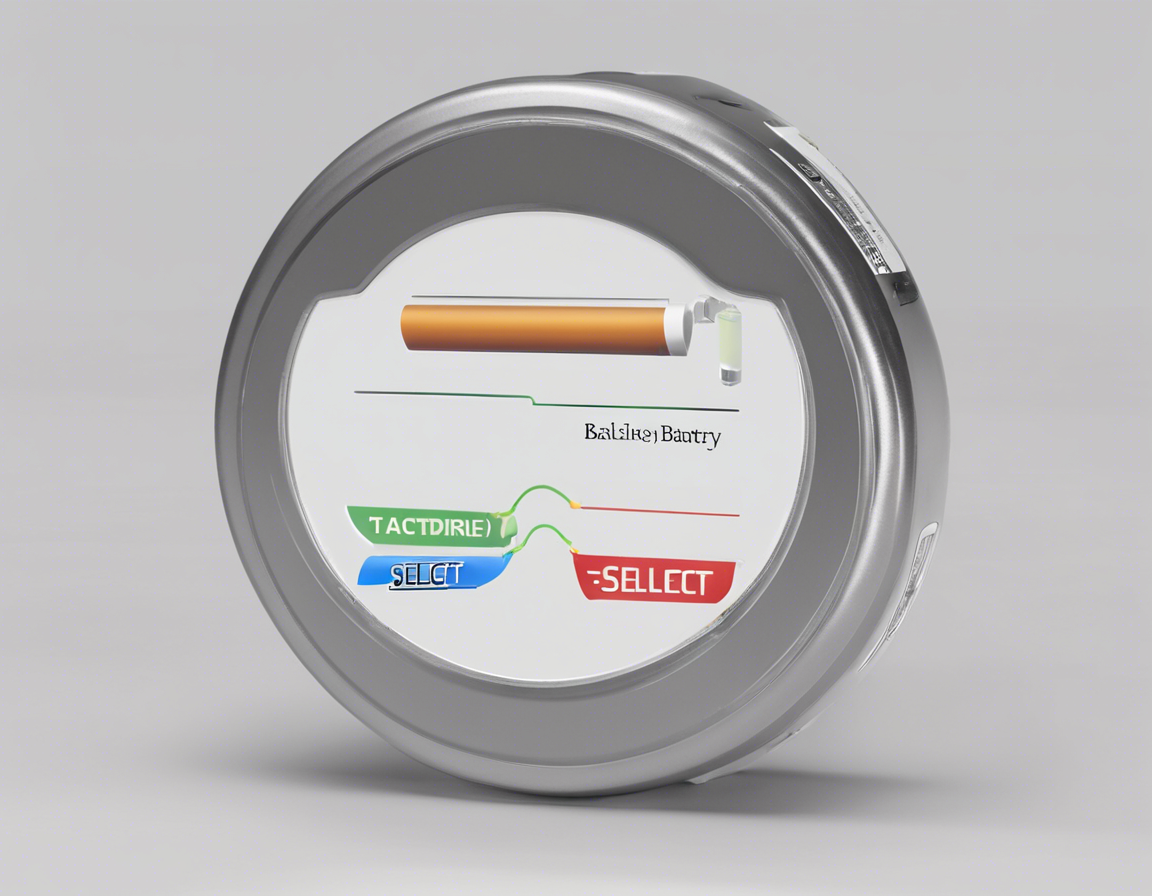Choosing the Right Battery for Your Needs
Batteries are an indispensable part of our modern lives, powering everything from our smartphones to our vehicles. With so many options available on the market, it can be overwhelming to select the right battery for your specific needs. Whether you are looking for a rechargeable battery for your electronic devices or a car battery for your vehicle, understanding the different types of batteries and their features is crucial to making an informed decision.
Types of Batteries
There are several types of batteries available, each with its own unique features and characteristics. Here are some of the most common types:
1. Alkaline Batteries
Alkaline batteries are one of the most commonly used types of disposable batteries. They are relatively inexpensive and are available in various sizes, making them suitable for a wide range of devices, from remote controls to toys.
2. Lithium-Ion Batteries
Lithium-ion batteries are rechargeable batteries commonly found in smartphones, laptops, and other electronic devices. They are known for their high energy density and long lifespan, making them ideal for devices that require a lot of power.
3. Lead-Acid Batteries
Lead-acid batteries are commonly used in vehicles, such as cars, motorcycles, and boats. They are known for their ability to deliver high bursts of power, making them ideal for starting engines. However, they require regular maintenance to ensure optimal performance.
4. Nickel Metal Hydride (NiMH) Batteries
NiMH batteries are rechargeable batteries that are commonly used in devices that require a moderate amount of power, such as digital cameras and handheld gaming devices. They are known for their long lifespan and ability to hold a charge for an extended period.
5. Lithium Polymer Batteries
Lithium polymer batteries are a type of lithium-ion battery that uses a solid polymer electrolyte instead of a liquid one. They are lightweight and flexible, making them ideal for use in slim devices like smartphones and tablets.
Factors to Consider When Choosing a Battery
When choosing a battery for your specific needs, there are several factors to consider:
1. Capacity
The capacity of a battery refers to the amount of energy it can store. It is typically measured in ampere-hours (Ah) or milliampere-hours (mAh). A higher capacity battery will last longer between charges.
2. Voltage
The voltage of a battery determines the power output. Different devices require different voltages to operate correctly, so it is essential to choose a battery with the appropriate voltage for your device.
3. Durability
Durability is crucial, especially for batteries that will be used in harsh conditions or extreme temperatures. Choose a battery that is resistant to impact, heat, and cold for optimal performance.
4. Rechargeability
If you are looking for a rechargeable battery, consider how often you will need to recharge it and how long it will hold a charge. Lithium-ion batteries are known for their ability to hold a charge for a long time.
5. Cost
Cost is also an important factor to consider when choosing a battery. While rechargeable batteries may have a higher upfront cost, they are more cost-effective in the long run as they can be recharged multiple times.
Frequently Asked Questions (FAQs)
1. How do I know which type of battery is best for my device?
To determine the best type of battery for your device, consider the power requirements, size constraints, and your budget. If you are unsure, consult the device’s manual or contact the manufacturer for recommendations.
2. How long do different types of batteries last?
The lifespan of a battery depends on various factors, including usage patterns, charging habits, and storage conditions. Generally, rechargeable batteries last for hundreds of charge cycles, while disposable batteries may last for months to years, depending on usage.
3. Can I use different brands of batteries interchangeably?
While it is generally safe to use different brands of batteries interchangeably, it is recommended to use batteries of the same brand, type, and capacity for optimal performance. Mixing different types of batteries may affect the device’s performance and safety.
4. How should I dispose of old batteries?
Old batteries should be disposed of properly to prevent environmental contamination. Many retailers and recycling centers offer battery recycling programs. Alternatively, you can check with your local waste management facility for disposal instructions.
5. Are aftermarket batteries safe to use in electronic devices?
Aftermarket batteries are third-party replacements for original batteries. While some aftermarket batteries may be safe to use, it is essential to choose reputable brands to ensure quality and safety. Using low-quality or counterfeit batteries can damage your device or pose a safety hazard.
In conclusion, choosing the right battery for your needs involves considering factors such as capacity, voltage, durability, rechargeability, and cost. By understanding the different types of batteries available and their features, you can make an informed decision that meets your specific requirements. Remember to follow proper disposal guidelines for old batteries and prioritize safety when using batteries in electronic devices.

